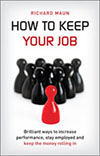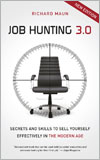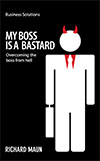better business blog
Tips and stories to add value to you and your organisation

Being Empathic
Imagine the scene: You are in the middle of a busy day, piles of work to do, when one of your colleagues enters your office and tells you she’s pregnant, with her first child.
Do you…
A. Smile and congratulate her.
B. Push the work to one side and ask gently what you can do to support her.
C. Give her a cross look and say ‘that’s all I need now…!’
The correct answers are A and B, and any combination of them.
Sadly, answer C is more common that it should be. My own horror story along these lines happened many years ago when a director asked me to find out if someone was pregnant, so they could fire her in advance of officially knowing. Incredible, but true. I was appalled and told him so and refused to comply.
Most people will recognise the earlier answer C and the story above as epic failures in empathy. The director’s story would also have been outside of employment law too, although he wasn’t that bothered about such niceties.
Empathy is often confused with sympathy and it’s useful to be aware of the difference. I bet that if you asked 10 people then most wouldn’t be able to explain what each means, but they are different, even if we often use them interchangeably.
Sympathy is when we feel compassion for someone’s situation. We may want to offer help and support and do something to benefit them.
Empathy is when we stand in their shoes and see the world from their perspective. We may feel their anger, or sadness, or scare. We may understand what it feels like to be in their situation and yet we might do nothing to help them and leave them to solve their own issues.
Being empathic does not mean being passive, far from it. We can hold the space and let the other person talk. We can ask them what resources they have, or need, to make a positive change. We can share our sense of what our feelings are, in response to their story. This can be powerful, as it might help them to name their own feelings and to explore further.
When our colleague tells us she’s pregnant it’s likely she would value us being empathic and seeing the world through her eyes. We can ask intelligent questions, rather than making silly jokes. We can give her space to chat and discuss workplace issues. And we can keep our opinions to ourselves. Empathy does not mean we have to agree with the other person, we just have to switch off our own internal dialogue and focus on them and what they’re experiencing.
In the pregnancy announcement example, we can imagine ourselves sitting in the office, facing our boss and feel what it’s like to tell them we are pregnant. Maybe this is an exercise all men need to go through; I think people would be more aware of the need to be empathic at work if they did!
This week, our task is to have at least one conversation where we focus on being empathic. We can hold the space, listen and put ourselves in their shoes. What do we notice? What questions arise?
Empathy is valuable and we can all be skillful in using it.
Next week: Working For Free! Really?
e-publishing
Click icon for details


recent posts
browse archive
books
Click cover to view details on Amazon

How to Keep Your Job
Brilliant ways to increase performance, stay employed and keep the money rolling in
Published 2011 Marshall Cavendish
208pp

Job Hunting 3.0
Secrets and skills to sell yourself effectively in the Modern Age
Published 2010 Marshall Cavendish
260pp

 RSS
RSS


